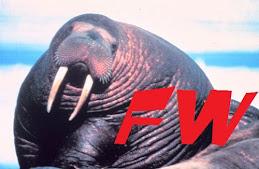The Liberal Party governed for 12 consecutive years (1993-2006), mostly under Jean Chretien, but in recent years have been hit by the so-called "Sponsorship Scandal", revolving around corruption and political favors among party members in Quebec. Also, during the 90s, the Canadian Right was split following the near-total collapse of the "Progressive Conservatives" in 1993, when that party went from the majority to having only 2 seats, and the far-right "Reform Party" emerged but was mainly limited to the western part of the country. The Reform Party was extremely controversial in Canada for its advocacy of positions associated with the modern American Republican party. It was openly Christian, anti-immigrant, anti-abortion, anti-gay rights, and also wanted to end the Canadian policy of bilingualism. Following a few unsucessful attempts at reunification, the Reform Party, "Conservative Alliance," and the vestiges of the Progressive Conservatives merged in 2003 under the more-moderate Harper and in 2006 gained a plurality.
This was an election, as stated earlier, that really failed to get going. Stephane Dion, the Liberal leader, was painted, seemingly succesfully, by Conservatives as a weak leader, a sort of Canadian Dan Quayle, and it seems he will soon be replaced. Many criticized Conservative policies, such as a $45 million dollar arts funding cut (can you imagine how low that would be on an American election agenda?), as well as Harper's seeming to take a "wait-and-see" approach to the economy. There was also a business about them trying to bribe a dying independent with life insurance that never really caught on. Other parties, especially the Bloc and NDP, were quick to declare victory at the end of the night because the Conservatives didn't have the majority they wanted, while some criticized the election itself as a wase of money.
Other interesting bits surroundng the Canadian election:
-The Green Party made waves, increasing its national vote totals substantially to around 6%, but failed to win a single seat. By contrast, the Bloc Quebecois had 10% of the national vote, but will have 50 seats. Green Party leader Elizabeth May was seen by many as having had the strongest showing in the debates, but lost to Canadian Defense Minister Peter MacKay in her own Nova Scotia riding. Many felt the Green Party helped take seats away from the Liberals in this election, in addition to the usual NDP cut.
-One issue that cropped up was a 2003 speech by then-Opposition Leader Harper, in which he called for Canada to send troops to Iraq. It was recently revealed to have been directly plagiarized from a speech by Australian Prime Minister Howard that was delivered only two days earlier. The staffer who supposedly wrote the speech ended up having to resign. It's interesting to point out that, though Harper is in power, he has thought better of sending a Canadian contingent to Iraq, as such as move would certainly be wildly unpopular in Canada.
-Chris Reid, a Conservative candidate in a Toronto district, dropped out of the election after statements on his blog gained media attention. The statements? That he wanted to legalize concealed carrying of handguns. In Canada, that's apparently so far outside the mainstream as to end Reid's political career. Here in Ohio, by the way, "Conceal/Carry" is legal, with a permit. A lack of success in Toronto, where Conservatives hold zero seats out of 22, ended up being a major piece in that party's failure to win a majority.
-Then there's the case of NDP candidate Andrew McKeever from Durham, Ontario. I'll just quote Wikipedia:
announced on October 3 that he would resign from the election campaign after it
was revealed that he had posted comments on Facebook in which he called one
war activist a “fascist bitch” and threatened to beat up another person. Mr.
McKeever wrote comments peppered with expletives and calling the operators of a
war resister website “Nazis.” McKeever was also quoted as saying “I like the
part in Schindler’s List when the guard starts waxing the prisoners.” McKeever’s
decision to drop out of the race came with just over a week left in the
campaign, meaning his name would remain on the ballot. One week before the
publication of McKeever's resignation, NDP leader Jack Layton defended McKeever
and refused to make him step down.
-More NDP... Julian West, the party's candidate in Saanich, BC, dropped off the ballot after details surfaced regarding his conduct at an "environmental event" 12 years ago, where he went skinny-dipping and then asked two teenagers to bodypaint him. This may be the first bodypainting scandal I have heard of in world politics.
-Independent candidate David Popsecu, running in Sudbury, was invesitgated for "hate speech" after he responded to a debate question about gay rights with "homosexuals should be executed."




No comments:
Post a Comment